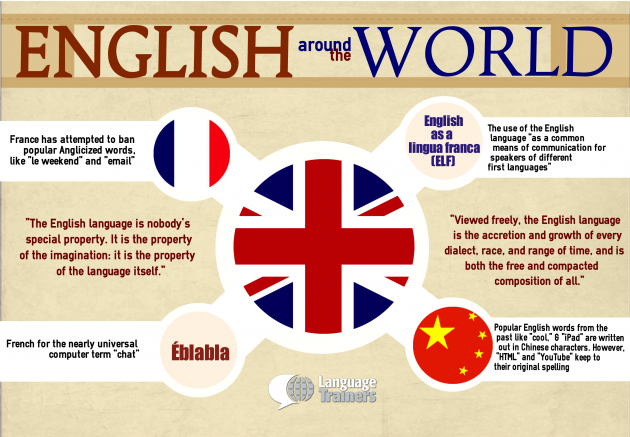How Is English Perceived in Foreign Countries?
Every language has its own culture surrounding it, and various languages can inspire different thoughts or responses in non-native speakers. Italian is universally understood to be the language of romance, while French still holds connotations of being the language of art of culture from its days as the European lingua franca. Spanish is often viewed as being very poor in synonyms, giving its speakers a limited means of expressing their ideas. Even different dialects of the same language can draw different responses from. But what about the way the world views English?
Not surprisingly, the cultural rise of the English language has had a strong and complicated effect on people of all countries, with the internet spreading English faster and more efficiently than any generation has previously seen. Many countries view the pandemic spread of English as establishing hegemony over other languages, which have difficulty competing with the appeal of English. France has famously attempted to champion the purity of the French language by banning Anglicized words such as le week-end. Certain government ministers have even attempted to introduce artificial French replacements for the universal English terms, such as éblabla for the nearly universal computer term “chat.”
While France’s linguistic policing is mostly viewed as ridiculous, China is taking language conservation to a new extreme. As English terms like “cool,” “sexy,” “bye-bye,” and “iPad” infiltrate the Chinese youth vocabulary, bringing with them a dangerous atmosphere of westernization, high-ranking institutions of the Chinese Communist Party have taken a stand against them. While English terms have wormed their way into Chinese vernacular in past generations, they have always been spelled out in Chinese characters, whereas millennial terminology like “YouTube” and “HTML” keep their original Roman lettering. Far more than just annoying, China views these English words as a threat to the heritage of the Chinese language, and is determined to eradicate them.
On the individual level, however, daily use of English is appealing for many reasons. For one thing, it’s viewed by many as the language of modernization, leading many teenagers of all nationalities to speak with each other in a hybrid of English and their native tongues. Knowledge of English allows people worldwide to communicate independently, without third-party translators. Western influence aside, English can open doors in all sorts of careers; politicians, entrepreneurs, writers, and musicians can all appeal to a greater target audience by expressing themselves in English rather than a local dialect. Many linguists and speakers of multiple languages have praised English for its playfulness and malleability of its vocabulary—much like German, it is possible to create big, long, ridiculous chains of words (for example, I have seen paperback bestsellers in airports described as “unputdownable”).
In a way, English is the language of the future, and while its damaging effect on small cultures and dialects is undeniable, it also offers opportunities and a sense of utilitarianism to speakers worldwide. And in an increasingly interconnected world, fluency in English mark the survival or annihilation of both individual careers and large corporations. Contact us at Language Trainers for more information on the importance of multilingualism, or look at the different language courses we have available.

